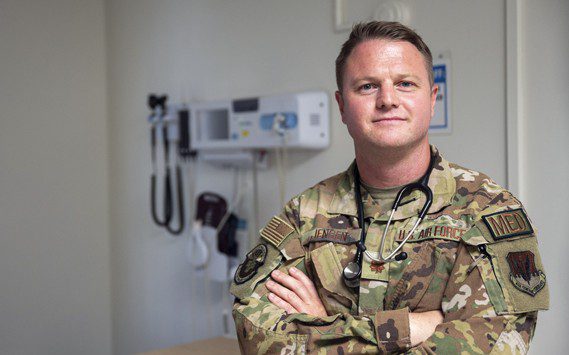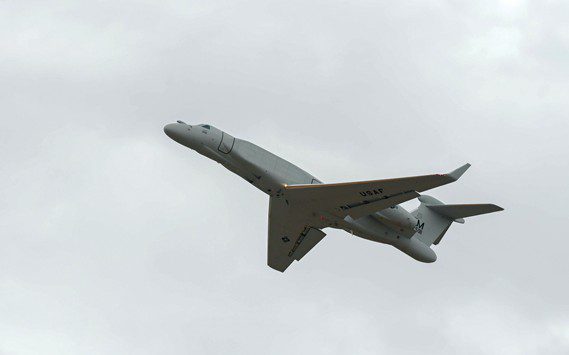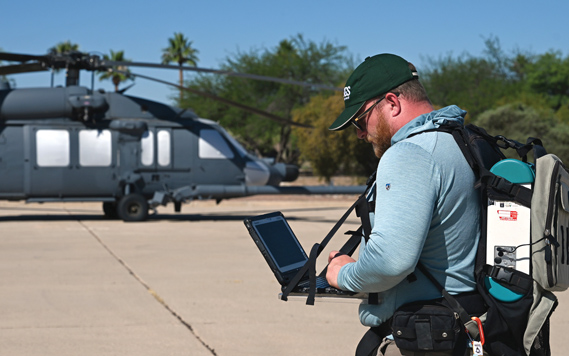LUKE AIR FORCE BASE, Arizona — As the Holidays rapidly approach, many of us will reflect on our past year in the Air Force to see if it was time well-spent. We may look back at all we’ve done or haven’t done, and decide whether or not we feel fulfilled; whether or not we have contributed to the mission, to our families, and to our investment in the future, both individual and communal.
We’ll look to see how many sleepless nights we spent catching up on the things we used to love.
We’ll think about how many days we missed to take on a last minute task or emergency assignment. We will mill over how much our work has consumed our lives.
Based on this year-in-review, we will assess ourselves and decide whether or not we are happy with where we are. Some of us will not be. But this is not because of your work.
The warrior ethos is not exclusive to those who directly fight the enemy. The warrior ethos applies to those who triumph, and that can be anyone in any job, anywhere. You might ask, “how?” when you work long, uneven hours at a furious and relentless tempo, when you go home each day at the crack of dawn and wake each night as the day’s last daylight sinks below the horizon, how do you ward away the exhaustion? How do you escape that feeling in the pit of your stomach that tomorrow will be no better than today?
You press on like a hammer, swung by the force of a health and self-improvement. Eat consistent meals, exercise, and most importantly, sleep.
According to a Harvard University article, 65% to 90% of cases of major depression in adults and up to 90% in children are related to sleep problems. A study of about 1,000 adults ages 21 to 30 enrolled in a Michigan health maintenance organization found that, compared with normal sleepers, those who reported a history of insomnia were four times more likely to develop major depression three years later.
In studies published by the University of Chicago Department of Medicine and the Natural Medicine Journal, lack of sleep is linked to elevated levels of Cortisol, the stress hormone. As most of us know, exercise makes us stronger, faster, healthier, and happier by building muscle, improving virtually every part of our body, and releasing endorphins in our brains. A study published by the Journal of Clinical Investigation correlates prolonged elevated levels of cortisol with a breakdown of muscle protein and muscle wasting, meaning that lack of sleep not only stresses you out more, but effectively reduces your muscle mass, counteracting many of the positive benefits of exercise.
Some of us vividly remember the benefits of eating three square meals a day in basic training. We lost fat, gained muscle, and had more energy throughout the day. Eating enough protein and eating at consistent times during the day will improve protein synthesis in your body and help you maintain lean healthy muscle growth in conjunction with an active lifestyle.
What about at work? What do you do there to keep the day from rolling over you? You compete. Make it a competition. Take pride in finishing first or producing a higher quality product. If there is no one to compete with, then compete with yourself. Be better, finish stronger. Make it a goal simply to reach a goal. Do what needs to be done hard and fast, and think only about winning.
Think only about triumph. Embody the warrior ethos.
Exercise will help you with this. Take the empowering satisfaction gained from pushing out that final rep with everything you have, take that runner’s high after sprinting to the finish, take that glory after scoring a touchdown or sinking a three-pointer, and parallel that with processes at work. Push hard at whatever you do, and it will make you better.
So how do you win? How do you maintain morale in the face of crushing disdain? How do you stay motivated when you give your work everything you have and still get hit by negative outcomes outside of your control?
Focus on the one thing that you can control. Improve yourself, constantly, and everything else in life will come easier.











